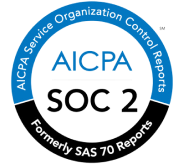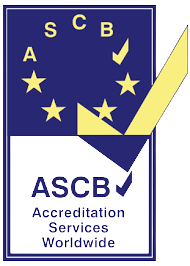Table of Content
Introduction
In the wake of global changes, remote work has become a crucial aspect of modern business operations. This paradigm shift presents a unique challenge in the MENA (Middle East and North Africa) region. Implementing it seamlessly requires a tailored approach, and one potent solution is leveraging Human Resource Management Systems (HRMS). This article delves into the intricacies of steps to normalise remote work in the MENA region with the aid of HRMS, offering practical advice and expert insights.
Want to skip the content?

The Impact To Uncover When You Normalise Remote Work in MENA
Remote work, once considered a luxury, is now a necessity. The MENA region, known for its diverse cultures and business landscapes, requires a nuanced approach to integrate this new work model effectively. Here's how to navigate this transition:
- Embracing Cultural Diversity
In a region as diverse as MENA, understanding and respecting cultural differences is paramount. uKnowva HR management software in the MENA region can facilitate cross-cultural communication and help bridge any gaps that may arise.
- Adapting Legal Frameworks
Compliance with local labour laws is crucial. HRMS can automate compliance checks, ensuring that remote work arrangements align with regional regulations seamlessly.
- Fostering Communication
Effective communication is the cornerstone of successful remote work. HRMS tools provide a platform for constant interaction, fostering teamwork and camaraderie among remote teams.
- Leveraging Technology Infrastructure
A robust IT infrastructure is essential for remote work. HRMS solutions can aid in optimising the technology landscape, ensuring smooth operations regardless of location.
- Ensuring Data Security and Privacy
Securing sensitive data is a top priority. HRMS platforms offer advanced security features, safeguarding company and client information.
HRMS: The Catalyst for Seamless Remote Work
HRMS plays a pivotal role in streamlining remote work processes. Here's how it can revolutionise your approach:
- Centralised Employee Management
HRMS provides a centralised platform for employee onboarding, performance tracking, and resource allocation, ensuring a cohesive remote work experience.
- Performance Monitoring and Evaluation
Tracking employee performance in a remote setting can be challenging. HRMS offers data-driven insights, enabling managers to gauge productivity effectively.
- Resource Allocation and Workload Management
Balancing workloads and allocating resources is simplified with HRMS tools. This ensures that tasks are distributed evenly across remote teams.
- Real-time Analytics and Reporting
HRMS empowers decision-makers with real-time data and analytics, enabling them to make informed choices for optimising remote work strategies.
Conclusion
Normalising remote work in the MENA region is not without its challenges, but with the right approach and the utilisation of HRMS, businesses can thrive in this new paradigm. By embracing cultural diversity, ensuring legal compliance, and leveraging technology, companies can unlock the full potential of remote work. HRMS acts as the linchpin, providing the tools and insights needed for a seamless transition. Embrace the future of work in MENA with confidence.
FAQs
How can HRMS enhance cross-cultural collaboration in the MENA region?
HRMS provides multilingual communication tools and cultural sensitivity training resources, fostering a collaborative work environment.
Can HRMS help in ensuring compliance with local labour laws?
Absolutely. HRMS automates compliance checks, ensuring that remote work arrangements adhere to regional legal frameworks.
What measures does HRMS have in place to safeguard sensitive data?
HRMS employs advanced encryption protocols and access controls to protect confidential information from unauthorised access.
How does HRMS address performance tracking in a remote work setting?
HRMS offers data-driven insights and KPI tracking, providing managers with a comprehensive view of employee performance.
Is HRMS suitable for businesses of all sizes in the MENA region?
Yes, HRMS solutions can be tailored to suit the specific needs of businesses, regardless of their size or industry.
How quickly can a company implement HRMS for remote work integration?
The implementation timeline varies based on the company's existing infrastructure and specific requirements. However, with expert guidance, it can be done efficiently.












